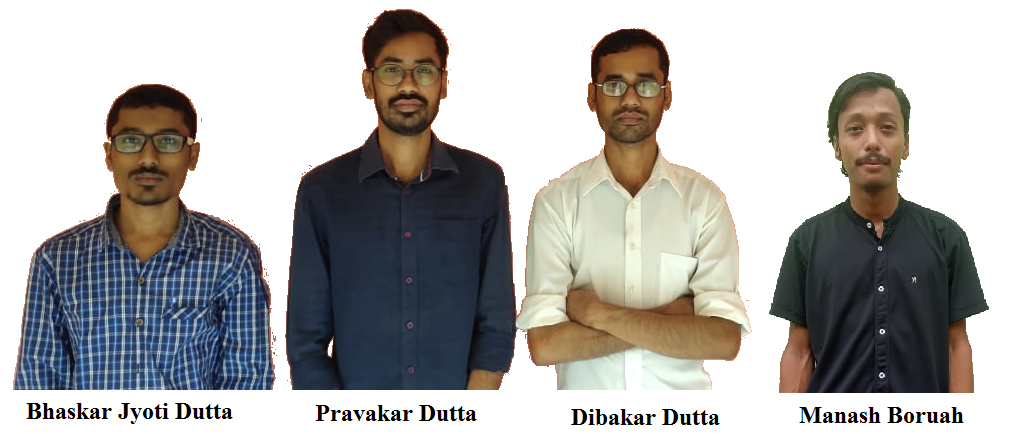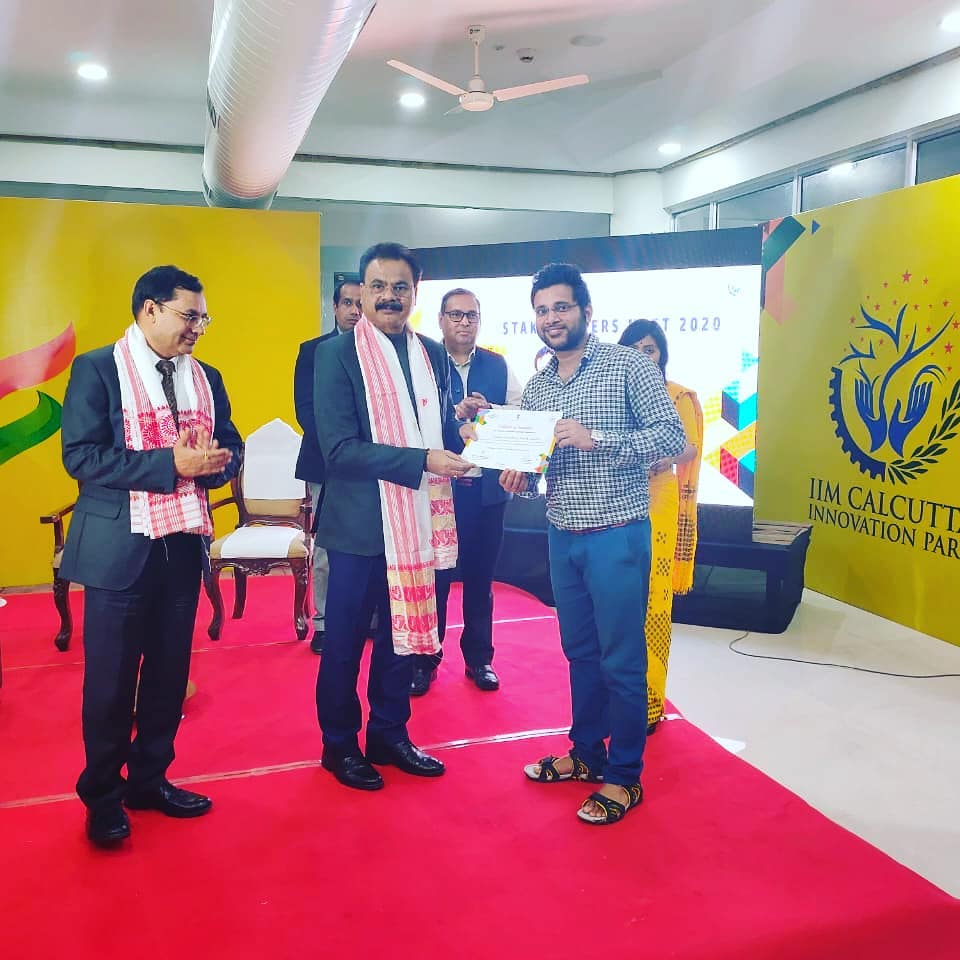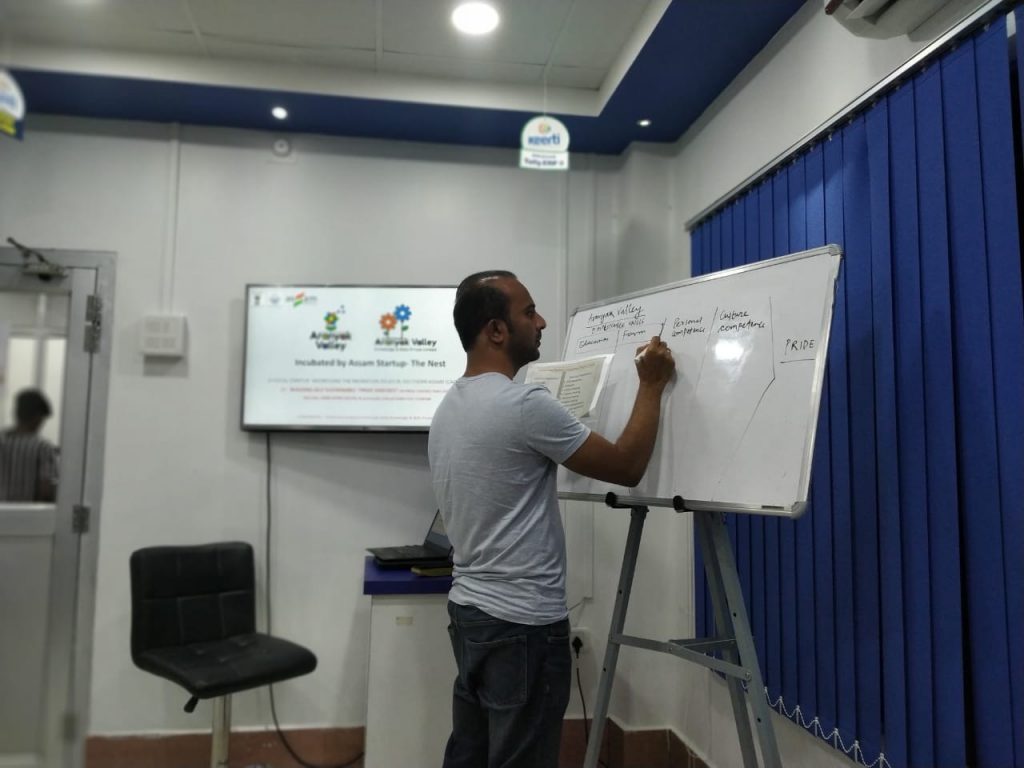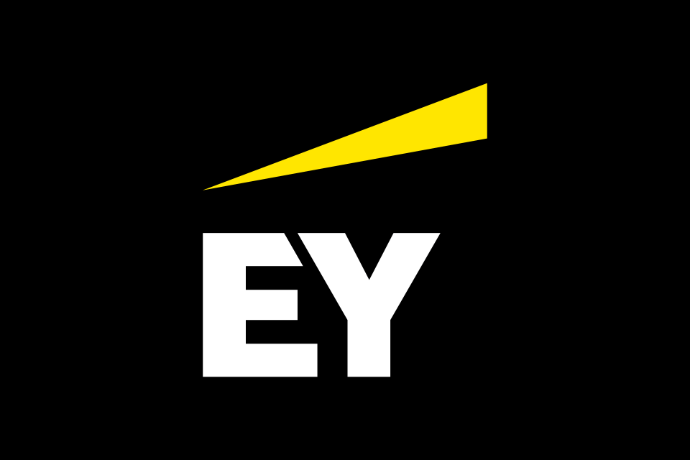Call it a fluke or a meticulous plan, the ed-tech startup, Gyan Panda, has launched the online learning app at a time when the world has realized the need for remote learning platforms more than ever.
In 2019, founders Manash Boruah, Dibakar Dutta, Bhaskar Jyoti Dutta, and Pravakar Dutta explored the need for a bi-lingual digital learning platform that would help students from Assamese medium schools to undergo a smooth transition to the predominantly English mode of learning at the higher secondary and degree levels. The high-priced packages at coaching centres and uneven availability of these centres in the remote districts of Assam were the other problems that they wished to address.
Manash, an engineering student in Jorhat, chanced upon a conversation on social media with Dibakar Dutta, an engineer by profession. While they discussed the idea, Dibakar got Bhaskar and Pravakar on board as well. Together they brainstormed for months to design high school and higher secondary level tutorials for SEBA courses that would help the students clear their concepts.
Gyan Panda was incorporated in October 2019 and sooner works got kick-started to develop the online tutorial app. Gyan Panda started offering online video tutorials for Mathematics Advanced Mathematics, Science, English, and Physics for students from ninth, tenth, and twelfth standards. While the mode of instructions remained predominantly Assamese, they soon launched Mathematics classes in English while obliging to the user demands. Works are underway to introduce Assamese and Social Science as well, which, the founders intend to offer for free.
Apart from these regular subjects, Gyan Panda has a special section catering to the basic concepts of Mathematics for those who need special care to grasp the basic concepts. Besides, there’s a Basic English Grammar course and an Extra Curriculum section focussed on career guidance, etc. Interestingly, these sections are offered for free. The Live Test section enables students to write class tests for gauging their performance.

Currently, there are 8 faculty members on board, giving out meticulously designed video tutorials. The number is expected to go up to 10 with the introduction of the two new subjects – Assamese and Social Science.
Gyan Panda is offering the school level courses for an annual subscription fee of Rs. 600 per subject, while the higher secondary level classes are on offer for Rs. 1200 per subject. A quarterly instalment option is also available, especially to make it more affordable for the people from the lower economic strata.
Acknowledging the inadequate knowledge of online payment among many, Gyan Panda has introduced a Help section especially to guide users on the process of making online payments. Furthermore, they have reserved the bank deposit option for those who aren’t comfortable with the digital payment method.
The startup has smartly leveraged the current demand for remote learning to rev up the revenue right after the start. Since its launch in April 2020, the Gyan Panda app has witnessed over 37, 000 downloads, with the daily active users tallying to around 2200. As Manash informs, the users are increasing by 500 every day. Till last month, the startup had made a total revenue of Rs. 2 lakhs, recording a phenomenal revenue growth of 117% in June.
While the founders are ideating new features almost every day, they are undertaking research and analysis of the existing digital learning platforms in the market to identify loopholes and cull out key learnings that could be applied to Gyan Panda to make it more effective and user-friendly. For instance, Manash points out about the relative ineffectiveness of animated educational videos for slow learners, who need special handholding by the teachers. “We feel that we cannot completely do away with a classroom environment, especially for students who need more time to absorb learnings. We are planning to introduce live classes in the future while making a conscious effort to create a classroom environment,” Manash informs.
As big names in the startup investment world are quietly keeping an eye on promising ed-tech startups in the wake of the pandemic, the one like Gyan Panda is expected to hold a strong ground in the race for impact-driven innovations in the education sector.
By: Satarupa Mishra

































